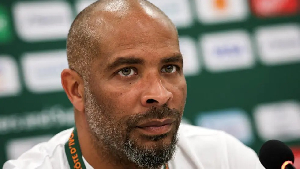In the next couple of months, the Nigerian government will commence paying N5,000 to about 10 million households as a palliative to cushion the effects of petrol subsidy removal.
The soothing is expected to last six months.
The amount is N50 billion monthly and reaches about N300 billion of the $800 million World Bank loan obtained to fund the project.
According to the Minister of Finance, Budget and National Planning, Zainab Ahmed, the $800 million has been negotiated and approved by the Federal Executive Council before National Assembly approval.
Ahmed disclosed this during a briefing at the sidelines of the World Bank/IMF Spring meetings in Washington, DC, on Sunday, April 16, 2023.
She stated that the Nigerian government would begin disbursing the fund immediately after the National Assembly approves it.
Daily Trust reported that the minister said the move had been prepared, including the social register, which will be used to transfer the fund.
She said: “We needed to have this ready because when the government eventually removes the fuel subsidy, the federal government will provide an immediate transport palliative to the most vulnerable members of our society who have been identified, registered, and now contained in our national social register.”
The finance minister noted that the Ministry of humanitarian affairs, disaster management, and social development drive the effort.
Ahmed said the register has about 10 million households, about 50 million Nigerians. Per the finance minister, the initial plan was to disburse cash transfers of N5,000 monthly per household for six months.
She said: “So, whether this is enough is an assessment we are undertaking with the transition team.
If it’s not enough, the country has to raise additional resources to cover more people, extend the period or increase the amount; whichever is finally negotiated. “When the subsidy is removed, additional revenue would now accrue to the Federation account.”
She also said that the Nigerian government is considering including the transport sector in the deal, but the decision has yet to be finalized.
Ahmed said that subsidy removal would cause a hike in inflation but would eventually moderate, stating that it is a global trend.
“That is why that initial fund is necessary so that you are deploying it quickly and reducing the impact on the lives of the most vulnerable people in our society,” the minister said.
She denied that any money was paid to any consultant for facilitating the loan approval from the World Bank.
“We raise our funds ourselves. We don’t need consultants to raise funds from these institutions. We raised this $800m by discussing it with the Debt Management Office, the Ministry of Finance, and the World Bank country office in Nigeria.
We have internal expertise that has worked well over time, so we don’t need consultants for that,” Zainab said.
Business News of Tuesday, 18 April 2023
Source: www.legit.ng













